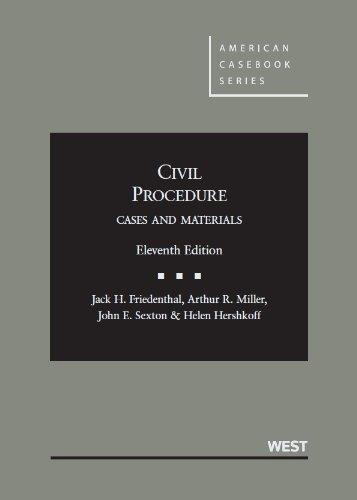2. Can you reconcile the Courts interpretation of Rule 3 in Walker with its interpretation of Rule...
Question:
2. Can you reconcile the Court’s interpretation of Rule 3 in Walker with its interpretation of Rule 4 in Hanna? Rule 4 says simply that service may be made by leaving a copy of the summons and complaint at the defendant’s home; it does not qualify this permission in any way or say anything about federal-question cases or diversity cases. Therefore, the Hanna Court concluded, Rule 4 says “implicitly, but with unmistakable clarity” that inhand service is not required in either type of case. Rule 3 is equally plain: it says simply that an action is commenced in federal court by filing the complaint. Yet the Walker Court assumes, contrary to the apparent intent of the Advisory Note (quoted in footnote 10), that Rule 3 may toll federal but not state statutes of limitations. Why is Rule 4 read broadly, making a clash with state law “unavoidable,” while Rule 3 is read to incorporate an implied exception for state statutes? Is the difference that Oklahoma’s tolling provision serves a substantive purpose while the Massachusetts service rule in Hanna is purely procedural in nature? And what do you make of the statement in footnote 9 that Federal Rules are not “to be narrowly construed in order to avoid a ‘direct collision’ with state law”? Isn’t that exactly what the Court does in Walker?
Step by Step Answer:

Civil Procedure Cases And Materials
ISBN: 9780314280169
11th Edition
Authors: Jack Friedenthal, Arthur Miller, John Sexton, Helen Hershkoff






